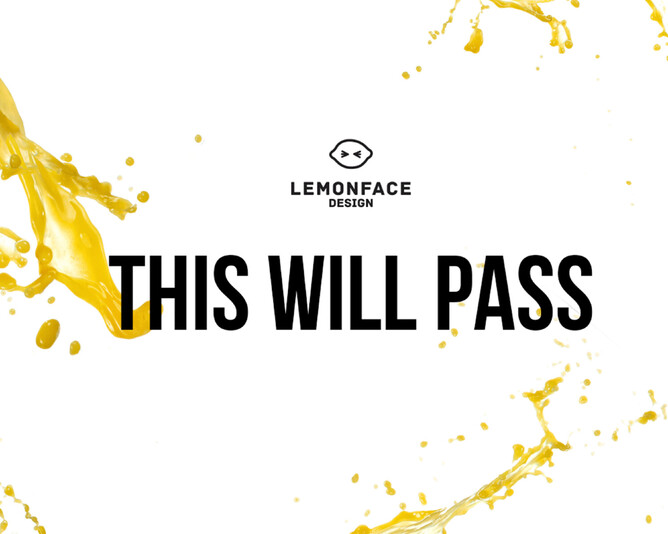On our Social media channels today we put up a post. A simple post. A hopeful post. A defiant post. The post had only 3 words but it felt good writing them down, converting it into a .png and putting it online. Almost immediately the ‘likes’ and thumbs up rolled in. It seems that our followers agreed with our simple sentiment. It felt good. What did we say? We simply said;
This will pass.
And it will pass. Won’t it?
Next question is ‘what do we do in the meantime?’ If we were British (we are) we’d ‘keep calm and carry on’ If we were Kiwi (we’re that too) we’d keep repeating ‘she’ll be right mate’ over and over again. Both admirable outlooks, but are they sustainable in the new normal? Probably not, but herein lies the bigger question; ‘what is the new normal?’
Spoiler alert - this article has far more questions than answers (sorry). We don’t know what the new normal is, or what it will become. But while we’re figuring it out we have to have a plan in mind surely? Lemonface Design have decided to do what we’ve always done – we’re designers and we design with a smile and we deliver on time. Every time. Sometimes ahead of time. Now more than ever we must keep smiling and we must keep delivering. All around us businesses are failing. The news stands of New Zealand will sadly never look the same again. Magazine titles that we know, love and trust have gone. In. The. Blink. Of. An. Eye. Gone. Will they rise again from the ashes of this pandemic? Probably not. Will they be replaced by something else? Hopefully.
Bad news - Global catastrophes change the world, and this pandemic is very much akin to a major war. Even if we contain the Covid-19 crisis within a few months, the legacy of this pandemic will live with us for years, perhaps decades to come. It will change the way we move, build, learn, and connect. There is simply no way that our lives will resume as if this had never happened. And so, while it may feel good in the moment, it is foolish to dive into a frenzy of activity or obsess about your scholarly productivity right now. That is denial and delusion. The emotionally and spiritually sane response is to prepare to be forever changed... when you are ready.
Good news - as a popular adage says, “When times are good you should advertise. When times are bad you must advertise.” This adage resonates strongly within the design fraternity too. There are several reasons to remain visible during a slowdown:
The “noise level” in a brand’s product category can drop when competitors cut back on their design spend. It also allows for advertisers to re-position a brand or introduce a new product.
Brands can project to consumers the image of corporate stability during challenging times.
When marketers cut back on their design spending, the brand loses its “share of mind” with consumers, with the potential of losing current – and possibly future – sales. An increase in “share of voice” typically leads to in an increase in “share of market.” An increase in market share results, with an increase in profits.
There are a number of examples of brands that benefited by maintaining their design budgets during economic downturns.
Breakfast Cereal: In the 1920’s, Post was the category leader in the ready-to-eat cereal category. During the Great Depression, Post cut back significantly its marketing budget and rival Kellogg’s doubled theirs, investing heavily in radio and introducing a new cereal called Rice Krispies, featuring “Snap,” “Crackle” and “Pop.” Kellogg’s profits grew by 30% and the company became the category leader, a position it has maintained for decades.
Fast food: In the 1990-91 recession, Pizza Hut and Taco Bell took advantage of McDonald’s decision to drop its marketing and promotion budget. As a result, Pizza Hut increased sales by 61%, Taco Bell sales grew by 40% and McDonald’s sales declined by 28%.
So don’t hide away people. Stay visible. Stay front of mind. If you drift away now, you may never find your way back. Deliver. Always deliver and smile while you’re doing it. We're not saying do it right now. We're saying do it when you are ready. This new world is a lot to process and It's also ok to not be ok right now, this is just food for thought.
Perhaps the best, and certainly our favourite quote about reducing budget in a recession came from Sam Walton, the founder of Wal-Mart. When asked, “What do you think about a recession?” he responded, “I thought about it and decided not to participate.”


